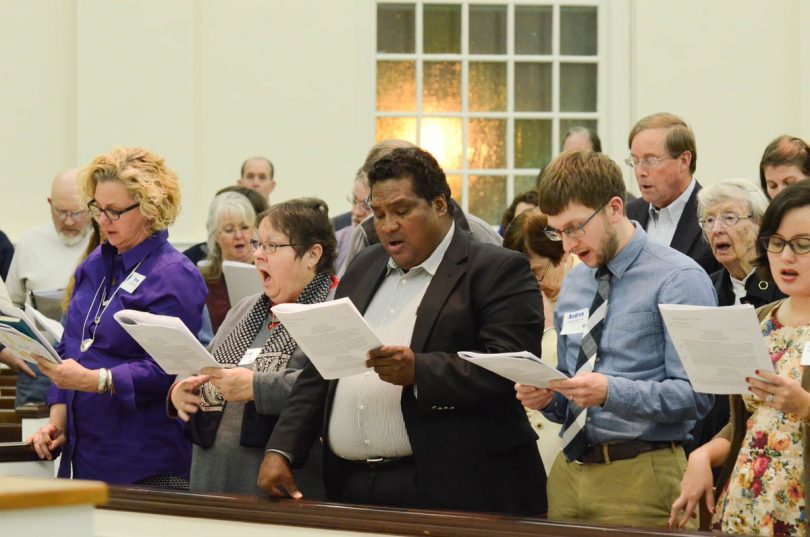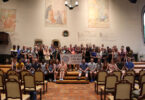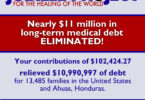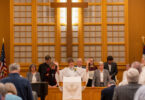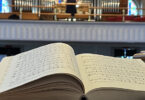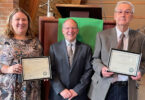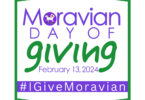During the Moravian Church Without Walls-hosted online service on June 7, the Rev. Dr. Nola Reed Knouse shared this sermon. To view the service, visit the MCWW Services page.
What does a Moravian Music Sunday sermon look like when I can’t tell you to get together and sing out in the congregation, no matter whether or not you can carry a tune in a bucket? My usual Moravian Music Sunday message – one I’ve adapted and preached in a couple dozen churches over the last 25 years or so – goes something like this: worship is an odd activity. Where else do we gather and sit, mostly in neat rows of people, all looking forward? Maybe at a concert or a lecture. Where else do we all sing together? Maybe “Take Me Out to the Ball Game” at the 7th-inning stretch. Where else do we sit respectfully and listen to someone talk for 15 or 20 minutes, or even longer, and not applaud as for a political speech or guest lecture? Where else is the transmission of money from my wallet to a plate or basket a sacred act? Yes, worship is an odd thing.
Where we are now, though, is a very odd place in itself. All of these trappings of worship have turned out to be dangerous to our health, and more importantly, to the health of the most vulnerable among us. We’ve known that a handshake or a hug can carry disease as well as affection. Passing an offering plate; holding a hymnal that someone else held earlier this morning; even passing out a bulletin – those may transmit a deadly virus. Singing together, it turns out, is a particularly efficient way of transmitting the virus. One by one, the things that we’ve come to think of as the hallmarks, the very essence, of our worship, are being stripped away – first, in early March, handshakes and hugs. Then the thought of passing something down a pew – whenever we do get together again in person. And now, even singing.
So what’s left of our worship? What’s left is – Jesus. It’s the Jesus who we claim as the reason for all those activities; the Jesus who calls us to love one another, who tells us that this is how people will know we are his disciples, if we love one another – and so we hug and shake hands and give each other a kiss on the cheek.
It’s the Jesus whom we worship, as both testaments call us to do, praising God with songs and prayers – and so we produce hymnals and bulletins with songs and words to help us to praise Jesus together.
It’s the Jesus who calls some to be pastors and teachers and musicians to aid in our worship; who calls us to care for others by giving food, shelter, hospitality, clothing – and so we receive our offerings as part of worship, to support those pastors and teachers and musicians, to combine our resources to provide for the needs of others, to support the buildings we use for worship and service and learning and ministry.
All of our worship practices, then, are outgrowths of how we’ve heard Jesus’ words over the centuries. But when we can’t do the things we’ve always done, in the ways we’ve always done them – and remember, “always” is pretty much a matter of our own memory and spans our own lifetime, not centuries – what’s left is…Jesus.
The Jesus who says to us, “If you love me, keep my commandments.”
The Jesus who promises that the Father will send another Advocate, a Helper, who will be with us forever.
The Jesus who will not leave us orphaned but who will continually – continually – reveal himself to us.
So why have we always sung together, anyway? Singing helps us remember the words. How did you learn the alphabet?
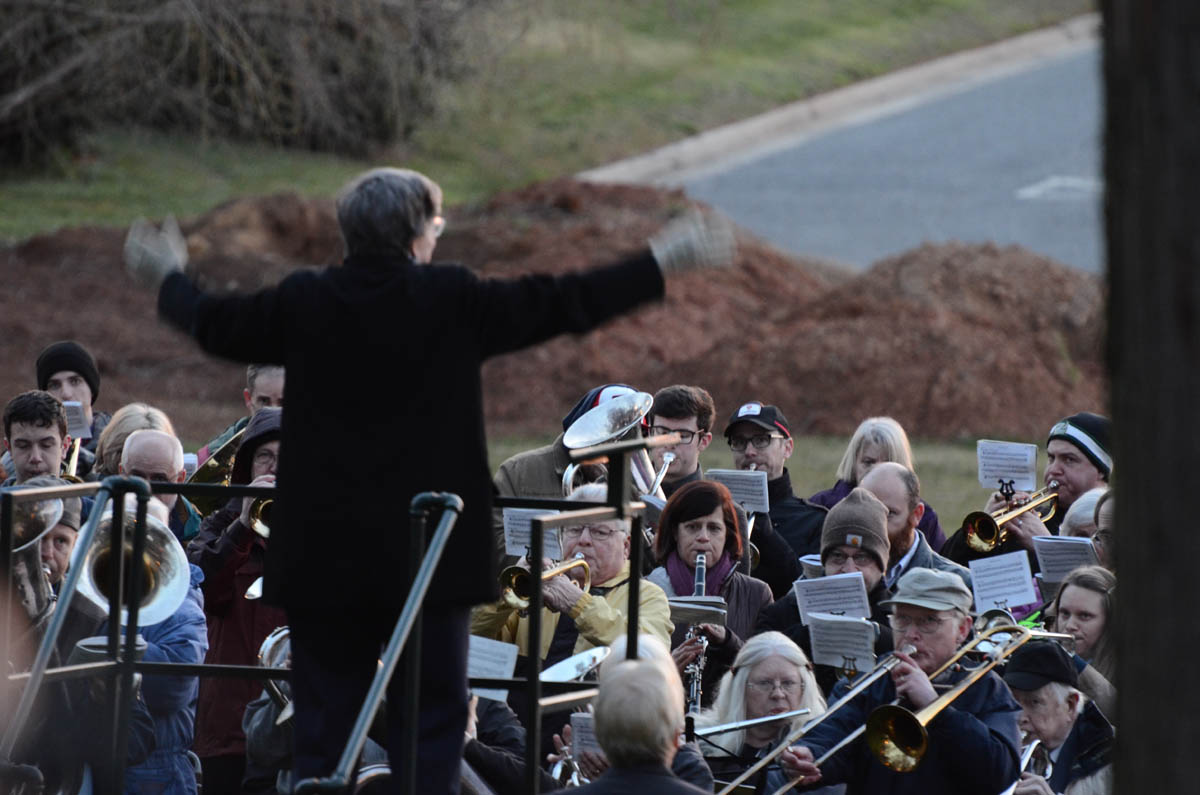 Singing reaches into our hearts in ways that words alone cannot. Think about those with advanced dementia who cannot remember their own name or recognize even those they’ve most loved; but who can remember a song or hymn.
Singing reaches into our hearts in ways that words alone cannot. Think about those with advanced dementia who cannot remember their own name or recognize even those they’ve most loved; but who can remember a song or hymn.
Singing deepens our fellowship, our community with one another. Think about college fight songs and alma maters, national anthems, the songs we sing in smaller groups, the camp songs that even years later bring back that strong sense of unity we shared with our fellow campers.
Singing expresses and forms our faith. When you sing something over and over again, for all those reasons, it sinks deep into your heart and soul, the very depths of your being.
Brothers and Sisters, our music has been a tool for us. It’s never been an “essential” of our faith; even though we’ve considered it an essential part of our worship. It’s not an essential for our salvation, like the good will of God our Father, the saving work of Christ, the gifts of the Holy Spirit. Singing doesn’t stand alongside our response to God’s works like our faith, our love, our hope. Singing has been for us, for over 500 years, a way of expressing and strengthening our faith, our love, our hope.
What’s left when you take away our singing together, our hugs and handshakes, our passing offering plates and bulletins and hymnals? What’s left when we can’t do coffee fellowship and potluck suppers the way we’ve always done them? What’s left is the one thing needful – the One whom we worship; the One who does not leave us orphaned; the One whose Spirit dwells within each of us and among us, whether we are in the same physical location or many miles apart.
What’s left is Jesus, our first love, and the very ground of our being. May it be so! n

